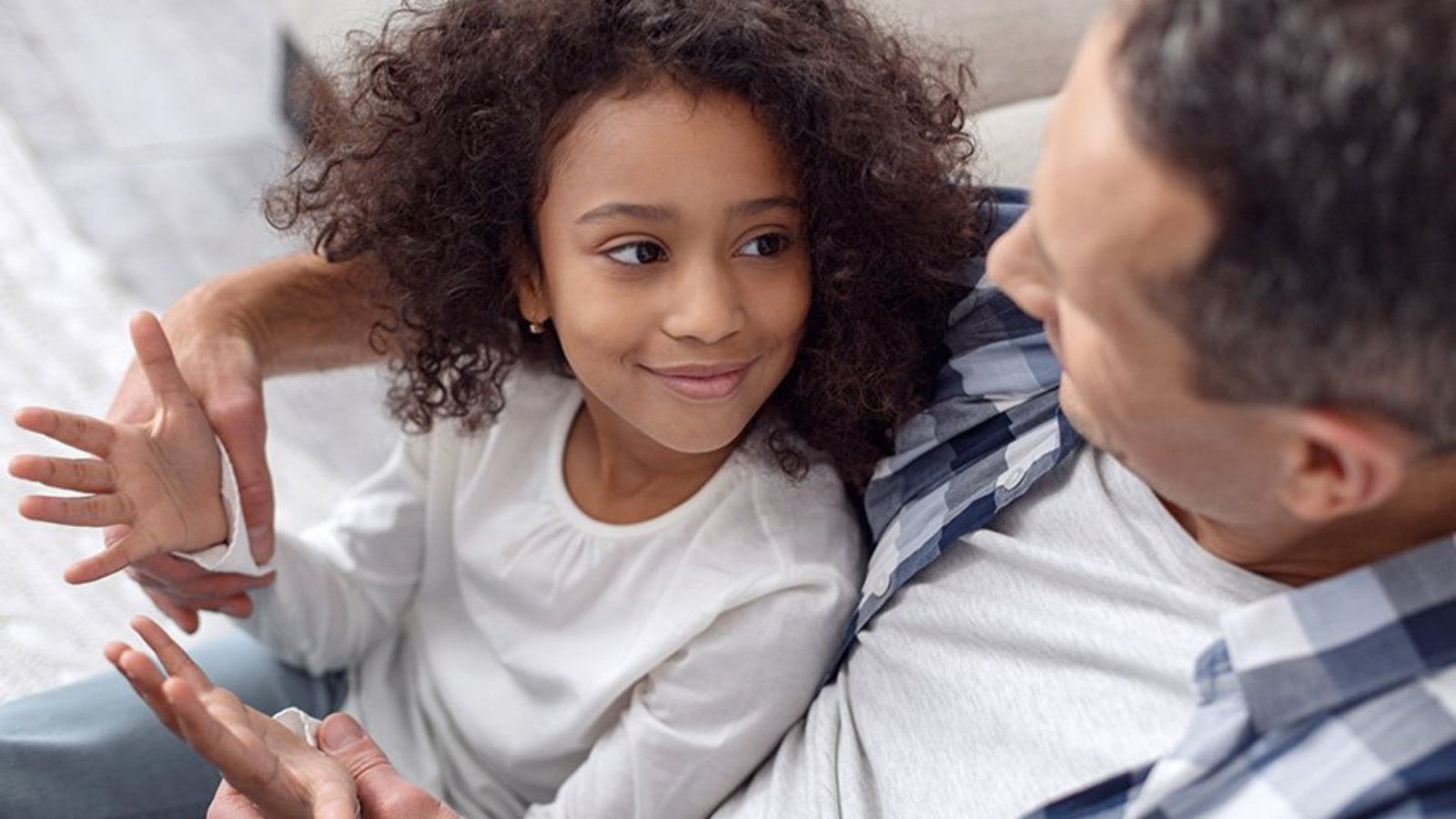Positive parenting is an approach that focuses on nurturing, guiding, and teaching children in a way that builds their confidence, fosters respect, and encourages positive behaviors. Unlike traditional methods that may focus more on punishment, positive parenting emphasizes communication, understanding, and connection between parent and child. In this article, we’ll explore the benefits of positive parenting and how it can help children grow into responsible, caring, and emotionally healthy individuals.

Builds Stronger Parent-Child Relationships
One of the biggest benefits of positive parenting is that it helps to build stronger relationships between parents and children. Positive parenting emphasizes open communication, trust, and mutual respect. When parents listen to their children’s needs, validate their feelings, and engage in positive interactions, it creates a solid foundation for a strong relationship. This bond helps children feel safe, supported, and loved, which in turn makes them more likely to listen and cooperate with their parents.
Encourages Emotional Intelligence
Positive parenting encourages children to understand and manage their emotions effectively. Parents practicing positive parenting take the time to explain feelings and help their children label and process emotions, such as anger, frustration, or sadness. This teaches children how to express themselves in healthy ways and cope with difficult emotions. Over time, this leads to the development of emotional intelligence, a crucial skill for navigating life’s challenges and building strong relationships.
Fosters Self-Esteem and Confidence
When children feel supported and valued by their parents, it boosts their self-esteem and confidence. Positive parenting provides an environment where children’s efforts are recognized and praised, not just their achievements. This helps children develop a healthy sense of self-worth and encourages them to believe in their abilities. With a strong foundation of self-esteem, children are more likely to take on challenges, pursue their goals, and navigate obstacles with resilience.
Promotes Positive Behavior
Positive parenting focuses on reinforcing good behavior rather than punishing bad behavior. By setting clear expectations, offering praise, and providing rewards for positive actions, children are more likely to repeat those behaviors. Positive reinforcement encourages children to make good choices, both at home and in social situations. This approach helps children learn right from wrong without fear or shame, which contributes to their long-term moral development.
Reduces Behavioral Problems
Children raised with positive parenting techniques tend to have fewer behavioral problems. This is because positive parenting focuses on understanding the root causes of misbehavior rather than simply disciplining for it. Parents who practice positive parenting work to address the needs behind their children’s behavior, whether it’s a need for attention, a lack of understanding, or an emotional struggle. As a result, children are less likely to act out or engage in destructive behaviors.
Encourages Independence and Responsibility
Positive parenting fosters independence and responsibility by giving children the freedom to make choices and learn from their mistakes. Parents who practice positive parenting provide their children with opportunities to develop problem-solving skills and take responsibility for their actions. This helps children build confidence in their ability to make decisions and learn how to handle the consequences of their choices. Encouraging independence in a positive and supportive way helps children grow into capable, self-sufficient adults.
Promotes Healthy Social Skills
Positive parenting not only teaches children how to communicate effectively within the family but also helps them develop healthy social skills outside the home. By modeling respectful communication, conflict resolution, and empathy, parents teach their children how to interact with others in a kind and considerate way. Children raised in an environment of positivity are more likely to form healthy, supportive relationships with their peers and adults, setting them up for success in social situations.
Enhances Mental Health
Children who experience positive parenting are more likely to have better mental health. A supportive and nurturing environment helps children feel safe and secure, which reduces anxiety and stress. Positive parenting also encourages healthy coping mechanisms, such as talking through problems, using self-regulation techniques, and seeking help when needed. With these skills, children are better equipped to handle life’s challenges and maintain good mental health throughout their lives.
Builds Better Problem-Solving Skills
Positive parenting teaches children how to solve problems in constructive ways. Instead of just telling children what to do, parents who use positive parenting often guide them through decision-making and problem-solving processes. They encourage children to think critically, consider consequences, and explore different solutions to challenges. This builds the child’s problem-solving skills and prepares them for the real-world challenges they will face as they grow older.
Reduces Stress for Parents
Although positive parenting requires time, effort, and patience, it can ultimately reduce stress for parents. By focusing on building positive connections and reinforcing good behavior, parents often find that they spend less time dealing with negative behavior or conflict. This can create a more peaceful and enjoyable home environment for both parents and children. Additionally, the confidence and resilience that positive parenting helps instill in children often lead to fewer stressful situations as they grow older.
Conclusion
In conclusion, the benefits of positive parenting are clear—it helps children develop emotionally, socially, and mentally into well-rounded, confident, and respectful individuals. By fostering open communication, providing consistent positive reinforcement, and encouraging independence, positive parenting sets a strong foundation for healthy relationships and personal growth. Not only does it benefit the children, but it also strengthens the parent-child relationship, reduces stress, and promotes a more peaceful and supportive home environment. Positive parenting is an investment in your child’s future, helping them become resilient, responsible, and caring adults.





